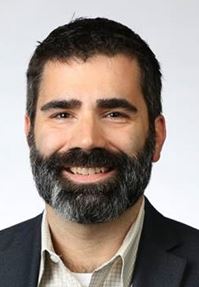A New Patient-Centric Virtual Trial Targets Rare Cancers

By Ed Miseta, Chief Editor, Clinical Leader

The TargetCancer Foundation, with support from Bayer, has launched a study to research genomic testing in people with rare cancers. The study, called TRACK (Target Rare Cancer Knowledge), has already enrolled the first patients in the U.S. Those patients have been diagnosed with rare cancers, including those with cancers of unknown primary (CUP).
I connected with Jim Palma, executive director for the TargetCancer Foundation, to learn more about the study and what it hopes to accomplish.
Ed Miseta: What is the TRACK study and how did it come about?
Jim Palma: The TRACK study is a prospective clinical trial studying precision medicine in rare cancers. TRACK is sponsored and managed by TargetCancer Foundation, a Cambridge, MA-based, patient-founded rare cancer research and patient support foundation. TRACK was developed directly in response to the needs of both the rare cancer patient and researcher communities. Through this innovative study, we hope to directly impact the patient experience while driving research forward for otherwise under studied rare cancers.
Miseta: What will participants get out of this study?
Palma: Upon enrolling in TRACK, patients will receive comprehensive genomic profiling of both tissue and blood through Foundation Medicine. Once the reports from that testing are returned, a Virtual Molecular Tumor Board (VMTB) will convene to analyze the reports along with the patient’s medical history and provide personalized treatment recommendations to the patient and their treating physician. Over the course of the year following, TargetCancer Foundation will track outcomes for each patient. During that time, the blood comprehensive genomic profiling will be repeated 2-3 more times and if new alterations are detected, patients may receive additional treatment recommendations.
Miseta: Where will the study be conducted, and how many patients will be enrolled?

Miseta: What can you tell us about the VMTB?
Palma: The VMTB unites a group of recognized experts in the rare tumor space, who will convene virtually and collaborate to develop individualized treatment recommendations for each patient. Importantly, the TRACK study staff will seek to ensure that the patient’s treating physician is incorporated in the VMTB meeting as well. The VMTB will feature all investigators on the study: Dr. Razelle Kurzrock (University of California San Diego), Dr. Vivek Subbiah (University of Texas MD Anderson Cancer Center), Dr. James Cleary (Dana-Farber Cancer Institute), and Dr. Roman Groisberg (Rutgers Cancer Institute of New Jersey). In addition, the VMTB will include Pradip De, Ph.D. (Avera Cancer Institute), Julia Elvin, M.D. (Foundation Medicine), Shumei Kato, M.D. (University of California San Diego), and Jason Sicklick, M.D. (University of California San Diego).
Miseta: Many patients cannot participate in clinical trials because they do not live near a trial site. How will TRACK help those patients?
Palma: TRACK utilizes remote consenting, which allows patients to fully consent and enroll in the study from their homes. This ensures that patients who live in geographic areas that are not typically served by clinical studies will have full access to TRACK, without any requirement to travel to an academic site. This approach also allows patients to continue working with their treating physician while participating in the study. In addition to the remote consenting option, patients being treated at MD Anderson or University of California San Diego can enroll in TRACK through those sites.
Miseta: Was COVID-19 a factor in incorporating virtual aspects into this study?
Palma: TRACK was under development long before the COVID-19 crisis hit, with the remote and virtual elements already built in. However, those elements became far more relevant as COVID-19 changed the patient experience so significantly.
Miseta: What virtual technologies will be used in this study?
Palma: As mentioned previously, TRACK utilizes remote consenting, which allows patients to fully consent to the study and enroll without leaving their homes. In addition, TRACK is utilizing software to enable the VMTB to convene in a virtual fashion, allowing for input and discussion in real-time from investigators across the country.
Miseta: What makes the trial design of TRACK unique?
Palma: TRACK challenges the traditional paradigm of clinical trial design and participation. TRACK is unique in that it is a clinical study fully initiated and managed by an advocacy foundation. In addition, the incorporation of remote consenting allows for patient participation without the typical requirement to travel to an academic medical center. Finally, providing comprehensive genomic profiling at multiple timepoints during the study will both provide critical information to the patient while developing unique data to help understand how cancer changes over time.
Miseta: Were you able to incorporate the insights of patients and patient advocacy groups when designing this study? If so, what was important to them?
Palma: Yes. In fact, the design and development of TRACK was directly informed by the experiences of the patients that TargetCancer Foundation works with every day. In addition, the TRACK Patient and Caregiver Advisory Council (PAC) provided substantive input and informed many elements of the TRACK trial design, including feedback on regulatory documents such as the informed consent. The PAC also provided in-depth feedback on the study website and other study communications, ensuring that all language is clear and understandable from a patient perspective. Importantly, the PAC helped TargetCancer Foundation to develop language and materials that spoke clearly to both scientific and patient audiences.
